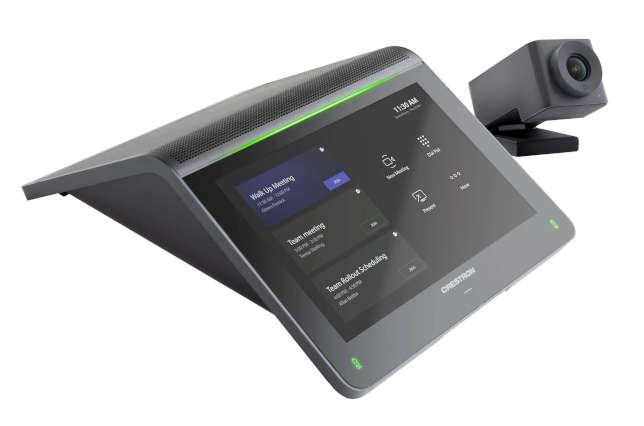Crestron Intros Web Conferencing Systems for Small Spaces
- By Dian Schaffhauser
- 08/12/20
AV
company Crestron
has developed a new line of tabletop conferencing systems that enable "one-touch" web meetings for small work spaces,
such as home offices. The CrestronFlex MM
features:
-
One-touch
joins;
-
A
seven-inch touch screen;
-
A
pickup range of 10 feet;
-
Enterprise-grade
network security; and
-
The
capability of being remotely provisioned, controlled and managed.
Certain
models also include an ultra-wide-angle high-definition camera with a
150-degree diagonal field of view.

There
are three basic versions:
-
The
MM30-TA, with a retail price of $750, accommodates Microsoft Teams
audio-only meetings; and
-
MM30-T
or MM30-Z, priced at $3,000 each, comes with native Microsoft Teams
or Zoom videoconferencing support (and the camera).
"The
pandemic has dramatically shifted the way we work and the spaces we
work in," said Andrew Gross, director of unified communications
for the enterprise at Crestron, in a press release. "Microsoft
Teams and Zoom are household names, huddle rooms and conference
spaces are being redefined to team units, and our desks are overrun
with migratory devices that are never ready for the next video call.
Crestron is quickly engineering products to solve these problems."
For more information, visit the Crestron site.
About the Author
Dian Schaffhauser is a former senior contributing editor for 1105 Media's education publications THE Journal, Campus Technology and Spaces4Learning.